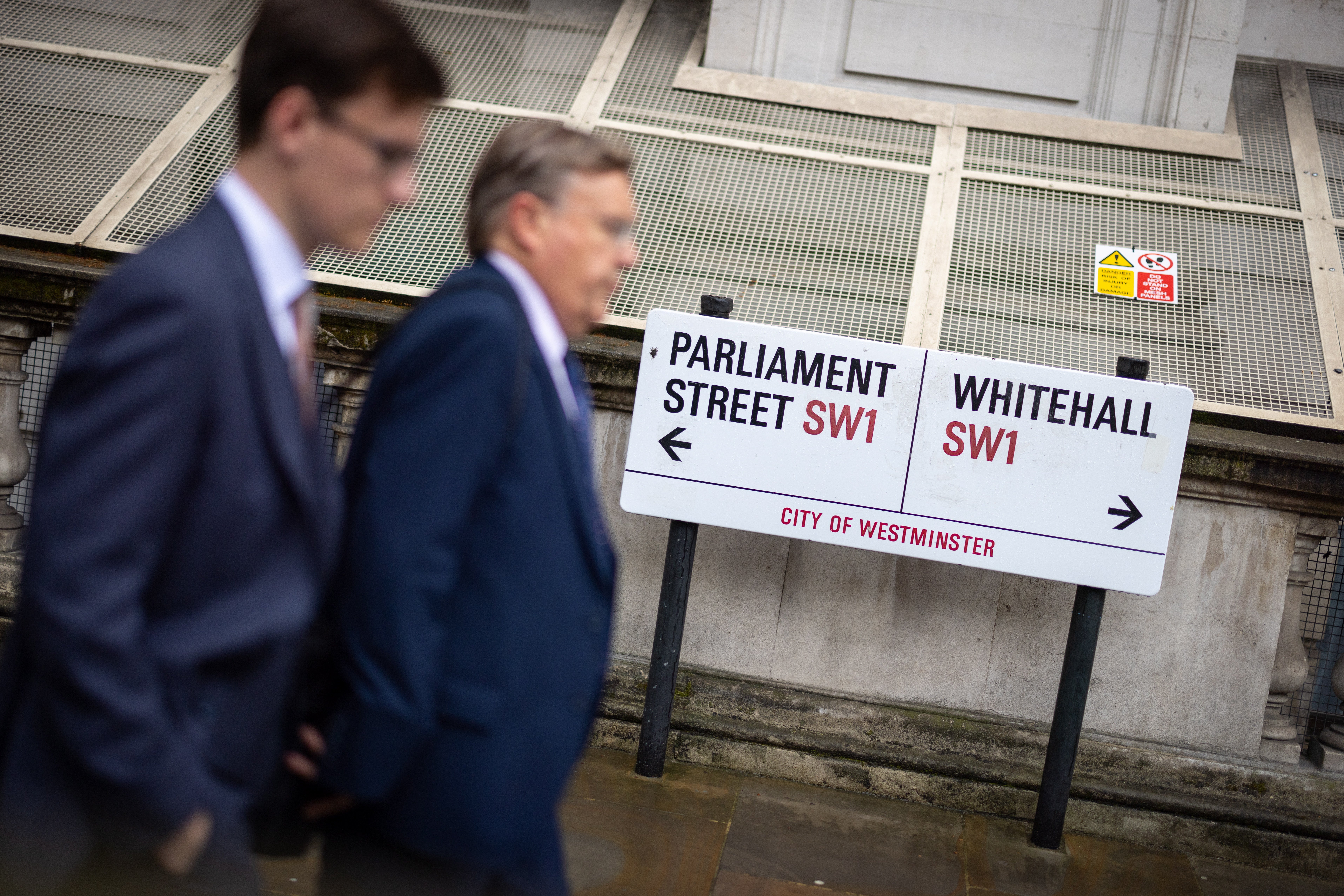Partygate is a reminder that the government must work with the civil service – not against it
Editorial: Whether or not the meeting between the prime minister and Sue Gray was appropriate, the whole episode is an indication of a wider dysfunctional relationship

The sorry tale of Partygate – concerning the parties that were held in 10 Downing Street when the rest of the country was in lockdown – is moving towards its final chapter. The prime minister has received one fine, and a further 125 have been issued, to 83 people in all.
As far as the Metropolitan Police are concerned, the matter is closed. But of course, in political terms it is not closed at all. The full report by Sue Gray, the senior civil servant charged with the unenviable task of examining the behaviour of the prime minister and others involved, is expected to be published in the next few days.
Boris Johnson has been criticised for meeting with Sue Gray in advance of its publication to discuss the findings. Angela Rayner, Labour’s deputy leader, said: “Boris Johnson must urgently explain why he held a secret meeting with Sue Gray to discuss her report, despite claiming her investigation was completely independent.”
Whether or not the meeting was appropriate – he is the elected prime minister, but she is a robust and honourable public servant and is well able to stand her ground – the whole episode is an uncomfortable reminder of the wider dysfunctional relationship between this government and the civil service.
If the cabinet secretary, Simon Case, is forced to resign over this matter, as it is rumoured he may be, he will be seen as a scapegoat for the failings of politicians. We should wait for the details of the report before leaping to judgement, but since he is also the head of the civil service, this will seem like politicians forcing the civil service to take the rap for their own failures.
There will always be some tension between the government of the day and the civil service that has to implement its decisions. There probably should be, as politicians and administrators have different roles to play in formulating and carrying out policies. There are differences in style and background, in the ways of working and in life experience. Effective governments learn how to use these tensions in a positive way to get things done. But with this government, they have broken out into something like open warfare.
Partygate is a microcosm of a much wider failure. There has been a breakdown in relations in the Home Office, including over legal advice on asylum claims. There was huge mismanagement of public funds in the early stages of the pandemic – a difficult task, to be sure, but one in which elementary checks on the companies from which PPE was purchased would have saved billions. There have been huge losses at the Ministry of Justice, which spent millions on a case-management system that was never used.
To keep up to speed with all the latest opinions and comment, sign up to our free weekly Voices Dispatches newsletter by clicking here
Public sector waste is profoundly destructive of faith in government – quite aside from the resources being misused. At a time when taxpayers are being squeezed by the surge in inflation and rising taxes, this is intolerable. The instinct of the government to blame everyone else for its own mismanagement is utterly disgraceful. As is the idea that you can improve the quality of performance by making 91,000 civil service jobs redundant.
So what is to be done? There is no simple answer, because this is a multifaceted issue. But for a start, ministers need to learn that they must work with the civil service, identifying areas where it is clear that more training and different skills are needed, and doing what every well-run business does, which is to look at where things can be streamlined and done more efficiently.
As for developing policies, there is a body of knowledge about what works and what doesn’t in government, and a wise new administration would seek to tap into that. There are immediate lessons to be learnt from Partygate, starting with the obvious one: if you can’t bring yourself to abide by the rules you have set, then either those rules have not been well constructed, or there is something wrong with your behaviour.
But the longer-term lesson – that this government has to learn to work with the civil service, not against it – matters most of all.



Join our commenting forum
Join thought-provoking conversations, follow other Independent readers and see their replies
Comments